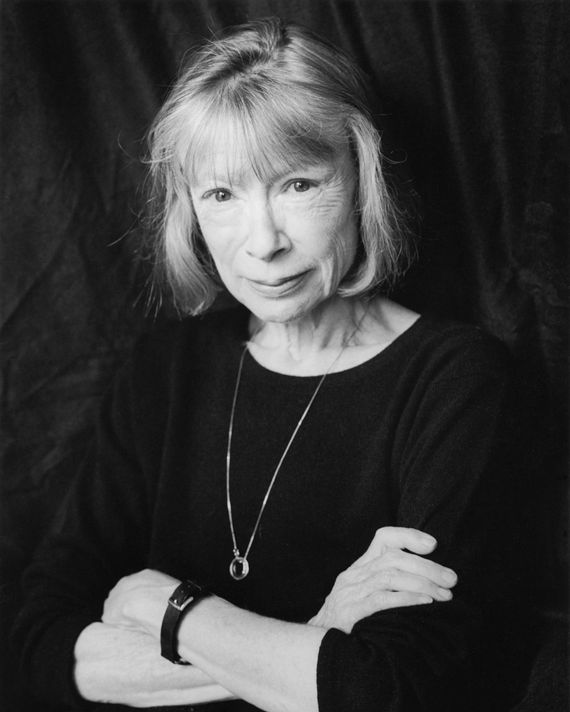
What does the world want in a woman writer? One asks for self-deprecation or one asks for its narrative twin, the confessional. One accepts the studious specialist perhaps. What one does not countenance, except in this rare case, is the authoritative woman generalist. One accepts it in this single case because this writer keeps a kind of terrifying command; the sentences jump ahead of even the most perceptive reader, with a syntactic thrust sufficiently forceful to overcome the aforementioned rules. She had a reputation for being obscure, but she was given to say precisely what she meant, albeit at the end of an essay, wherein the statement might backlight all that came before in new knowledge. This is, in our time, suspect.
We live in a world diminished by Strunk and White, in which the simple sentence is taken not just to be stylistically but morally superior. An extra clause is a kind of deceit, a syntactic opportunity to hide the ball, contrary to the straight-shooting world of the TED talk, of counter-intuitive factoids delivered with Gladwellian regularity. Efficiency was never her aim; rather, it was a kind of casual density of thought, profound insights tossed off as easy asides. In “Varieties of Madness,” an essay that compares the Unabomber to his mail-bomb victim David Gelernter and finds Gelernter wanting, Didion speaks of “a society that would reduce its own deepest mysteries to opportunities for striking an attitude.”
Mystery over takes. Each sentence is drenched in perspective; no fact could overcome the gravitational pull of her narrative voice. And yet she stood ever bewildered at the strange wonder of the world. Here was a society that would both elevate the existence of an unresponsive 41-year-old Terri Schiavo to a matter of electoral significance and flatten it to a matter of punditry. She wrote admiringly of Joan Baez (“an interesting girl”) and Georgia O’Keeffe (“a woman clean of received wisdom.”) She did not enjoy the work of Thomas Kinkade, the film Manhattan, faux marble, or the transformation of grand moral questions into vulgar political “issues.”
The love of literary women for Didion is cliché verging on embarrassment, but women are frequent objects of loud condescension, and thus well positioned to enjoy the quiet evisceration of a self-satisfied subject via the passive voice. “Don’t make the mistake of taking a seat at the big table,” someone tells Joan Didion in “California Dreaming,” absolutely the meanest thing anyone has ever written about a think tank, “the talk there is pretty high-powered.” She goes on merely to quote men as they go about, in their own words, “clarifying the basic issues”:
“Is there any evidence that living in a violent age encourages violence,” someone was asking at the big table.
“That’s hard to measure.”
“I think it’s the Westerns on television.”
“I tend [pause] to agree.”
So much of the humor derives from this slightly undermotivated malice. Didion on Nancy Reagan: “She was listening attentively. Nancy Reagan is a very attentive listener.” The beginning of Didion’s profile of Newt Gingrich is simply a mortifying list of books and people he says have influenced him; the end is a meditation on a cookie Gingrich said he wished someone had left for him as a four-year-old. (“This cookie,” writes Didion, “is worrisome.”) Didion on the Left Behind books:
“What might seem to be the lesson of the Christian litany, that only through the acceptance of a profound mystery can one survive whatever spiritual tribulation these poetic fates are meant to signify, is not the lesson of the Left Behind books, in which the fates are literal rather than symbolic, and the action turns not on their mystery but on the ingenuity required to neutralize them: a surprising number of the series’ beleaguered band of Christians turn out to have been trained, conveniently, as pilots, computer hackers, document forgers, disguise experts, black marketeers, interceptors of signal intelligence, and medical trauma specialists.”
This is hilarious and it is virtuosic, the delicious showmanship of someone many steps ahead in her decades-long defense of the unknowable. “Her syntax is like a steel trap,” essayist John D’Agata once said. “Once you enter into it there’s no chance of coming out on the other end not believing what she wants you to believe.” Which is what? Much of the time she was questioning other people in their absurdist certainty, stringing them up with their own takes. What Didion understood was that the defense of the unknowable required, unexpectedly, a kind of absurd all-knowingness, something solid enough to take down the certainty-havers. You had to plant a flag, stake your ground, even in a state of terror at the fragility of the social order. It was an omniscience that did not so much risk unlikability as render it irrelevant; you wouldn’t ask whether nature were likable, or God. “Do you find this,” an ancient male professor asked the class the first time I was taught “Goodbye to All That,” “annoying?”
Her most technically adept work was not her most beloved. Once, someone asked Didion why people preferred her early essays to the later.
“No one likes a know-it-all,” she said.
I read, bewildered, takes that position Didion as “stylistically influential.” No one of whom I am aware even tries to combine Didionesque music (“Havana vanities come to dust with Miami”) with syntactically acrobatic cultural analysis. If she has somehow become the poster girl for the confessional essay, this is the kind of myth she would have enjoyed unmaking. “Joan Baez was a personality before she was entirely a person,” Didion wrote in Slouching, “and like anyone to whom that happens, she is in a sense the hapless victim of what others have seen in her, written about her, wanted her to be and not to be.”
The lesson to take from Didion is one of wild conviction: the kind of authority rare in contemporary prose, discouraged in women, ravaged by albeits and to-be-sures. The lesson is to claim a position from which to judge and defend it against all comers, to resist the simplicity of the polished political anecdote, the skeletal sentence, the lesser men at the big table, the received wisdom of which Georgia was clean. All the obits will note that she left behind a book about grief. But every book—and nearly every sentence—is about courage.


